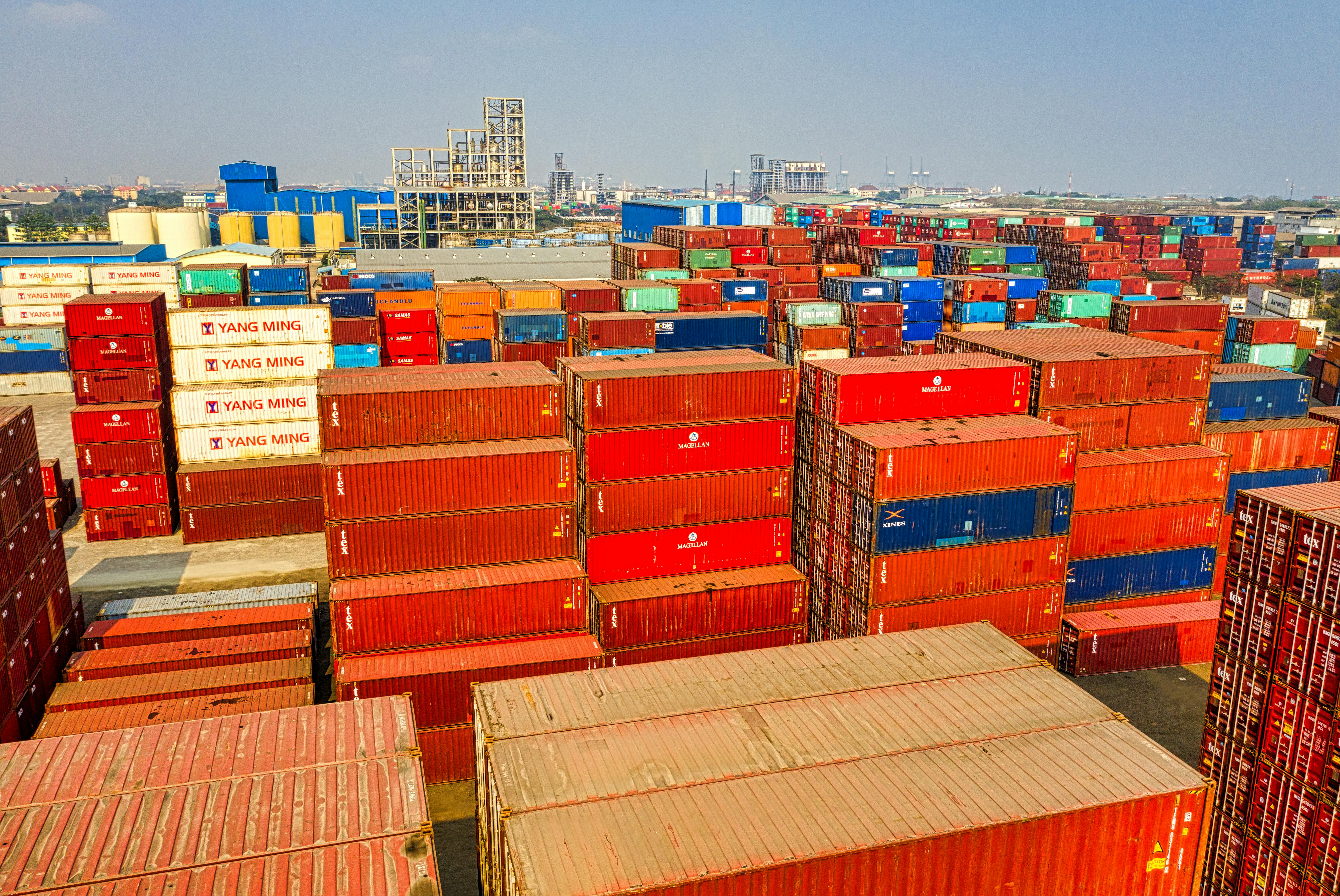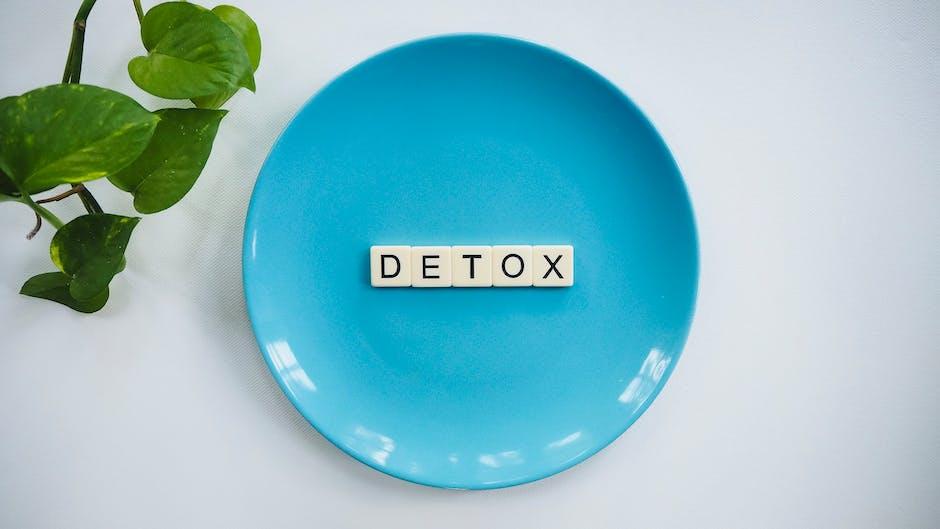Detoxing a baby from heavy metals can be a daunting task. Heavy metals, such as lead, mercury, and arsenic, can accumulate in the body and cause serious health problems. Fortunately, there are many ways to help reduce a baby’s exposure to these toxins and help them detox naturally. In this article, we will discuss the dangers of heavy metal toxicity in babies, how to reduce their exposure, and natural remedies for detoxing babies from heavy metals.Heavy metals are a group of elements that have a high atomic weight and a density at least 5 times greater than that of water. Examples of heavy metals include mercury, lead, chromium, arsenic, cadmium, and thallium. These metals are often toxic and can cause health problems if ingested or inhaled.
What Are the Effects of Heavy Metals on Babies?
Heavy metals, such as lead, mercury, arsenic, and cadmium, can be toxic to babies. These metals are sometimes found in water, soil, air, and food. Exposure to heavy metals can cause a variety of health problems in babies, including physical and neurological damage.
Lead is one of the most common heavy metals that can affect babies. Exposure to lead can cause delays in physical growth and development. It has also been linked to learning difficulties and behavioral problems. In some cases, high levels of lead exposure have been linked to mental retardation and even death.
Mercury is another heavy metal that can be toxic to babies. It is often found in fish and seafood. Babies exposed to too much mercury can suffer from cognitive impairments and motor skill delays. They may also experience kidney failure or other health complications.
Arsenic is a naturally occurring element that can be found in water and soil. Babies exposed to high levels of arsenic have an increased risk of developing cancer later in life. It has also been linked to birth defects and other developmental delays.
Cadmium is another heavy metal that can be harmful for babies if they are exposed to it at high levels. It has been linked to learning disabilities, behavior problems, depression, and impaired immune system functioning. Cadmium is commonly found in cigarette smoke and certain products like batteries or jewelry made with nickel plating.
Heavy metal exposure in infants can have serious consequences for their health later on in life. To reduce your baby’s risk of being exposed to these dangerous substances it’s important to take steps such as avoiding smoking around your child or using natural cleaning products instead of harsh chemical ones around the home.
What Are the Sources of Heavy Metals?
Heavy metals are naturally occurring elements that have a high atomic weight and a density at least 5 times greater than that of water. They can be found in the earth’s crust in varying concentrations and can be released into the environment through both natural and anthropogenic sources. Natural sources of heavy metals include weathering of rocks, volcanic eruptions, forest fires, and sea spray. Anthropogenic sources include industrial activities such as mining, smelting, manufacturing, waste disposal, and burning of fossil fuels. Heavy metals can also enter the environment through agricultural practices such as application of manure or compost to soil or runoff from fields fertilized with these materials.
Once they enter the environment, heavy metals can accumulate in soils, sediments, vegetation, and aquatic environments like streams and rivers. This is particularly true for metals that are not easily degraded by biological processes or chemical reactions. In aquatic habitats, metals tend to bind to organic matter in sediment where they can accumulate over time. In terrestrial ecosystems, heavy metals may accumulate in plants or animals either by direct uptake or by uptake from contaminated soils.
Testing for Heavy Metals in Babies
Heavy metals are toxic elements that can accumulate in the body over time and can cause long-term health effects. Testing for heavy metals in babies is important to identify potential exposure and take steps to reduce it. This type of testing requires a blood or urine sample from the baby, which is then tested for a variety of heavy metals, including lead, mercury, and arsenic.
The most common method of testing for heavy metal exposure in babies is a blood test. This type of test measures the amount of specific heavy metals present in the baby’s blood. It can detect even very small amounts of these metals, which may indicate recent or chronic exposure. A urine test may also be used to measure levels of certain heavy metals, as well as other substances that can indicate recent exposure.
In some cases, a doctor may order additional tests to determine if there is an underlying medical condition that could be causing high levels of heavy metals in the baby’s body. For example, if lead poisoning is suspected, a doctor may order an X-ray or CT scan to look for signs of lead deposits in the bones or soft tissue.
If it is determined that a baby has been exposed to high levels of heavy metals, treatment will depend on the type and amount of metal found as well as other factors such as age and health status. Treatment may include chelation therapy (the use of medication to help remove the metal from the body) or dietary changes to reduce further exposure.
It is important for parents to be aware that their children may be exposed to potentially harmful substances such as lead or mercury through environmental sources such as water or air pollution. Regular testing for heavy metals can help identify any potential exposures and allow necessary steps to be taken quickly to reduce further risk and protect their child’s health.
Natural Ways to Detox Babies From Heavy Metals
Heavy metals such as lead, mercury, and arsenic can be found in our environment and can have a negative effect on our health. Unfortunately, babies are especially vulnerable to the harmful effects of heavy metals. As such, it is important to consider natural ways to detox babies from toxic metals.
One way to help protect your baby from heavy metals is through diet. Eating organic fruits and vegetables can help reduce exposure to pesticides, which may contain traces of heavy metals. Additionally, breastfeeding has been shown to reduce levels of lead in infants’ blood. However, if you are unable to breastfeed or supplement with formula, look for organic formula that does not contain any metal contaminants.
Another way to naturally detox your baby from heavy metals is by providing them with foods high in zinc and iron. Zinc has been shown to reduce the absorption of lead in children’s bodies while iron helps bind with arsenic in the intestines so it cannot be absorbed. Foods such as leafy greens, nuts and seeds are all high in both zinc and iron and can help protect your baby from heavy metals found in their environment.
In addition to diet, there are other natural methods that can help detoxify your baby from heavy metals. Increasing their exposure to probiotics can be beneficial as probiotics have been found to reduce lead levels in infants’ blood. Probiotic-rich foods such as yogurt or kefir are great options for babies over six months old who are able to consume solid foods. Additionally, chlorella supplements have also been shown to reduce lead concentrations in children’s bodies by binding with it in the intestines before it is absorbed into the body.
Finally, another great way to naturally detox babies from heavy metals is through regular exercise. Physical activity helps flush toxins out of the body while boosting immunity at the same time – both of which can help protect your little one from toxic metal exposure.
Overall, there are many natural ways you can take steps towards reducing your baby’s exposure to heavy metals found in their environment and protecting them from potential health risks associated with these toxins. By ensuring they get plenty of nutrients through a balanced diet full of organic fruits and vegetables along with regular exercise and probiotic-rich foods or supplements when appropriate you can give them the best chance for a healthy start in life!

Making Dietary Changes to Help Detox From Heavy Metals
Detoxing from heavy metals can be a difficult and time-consuming process, but making dietary changes can help to speed up the process. Eating foods that are rich in vitamins and minerals can help to bind to the heavy metals in the body and flush them out. It is important to focus on nutrient-dense foods that will provide the body with the essential nutrients needed for detoxification.
Eating more plant-based foods such as fruits, vegetables, nuts, seeds, and legumes can help provide essential vitamins and minerals that will aid in detoxification. These foods are also high in fiber which can help to bind to toxins and flush them out of the body. Additionally, Omega-3 fatty acids from fish or flaxseed oil can help reduce inflammation and protect against damage caused by heavy metal toxicity.
Including probiotic-rich foods such as yogurt, kefir, sauerkraut, and kimchi is also a great way to support detoxification. Probiotics help balance the gut microbiome which plays an important role in overall health. Additionally, eating fermented foods helps reduce inflammation which can aid in detoxification.
It is also important to avoid processed or refined sugars as these types of foods can cause an imbalance in blood sugar levels which can further inhibit detoxification processes. Reducing consumption of processed meats and dairy products is also recommended as they may contain high levels of toxins that could further disrupt the body’s natural detoxification processes.
Making dietary changes is one of the best ways to support your body’s natural detoxification process when it comes to heavy metal toxicity. Eating nutrient-dense whole foods such as fruits, vegetables, legumes, nuts, seeds and omega-3 fatty acids will provide your body with essential vitamins and minerals needed for optimal health while avoiding processed or refined sugars will help keep blood sugar levels balanced for better overall health. Additionally including probiotic-rich fermented foods will aid in balancing your gut microbiome while reducing consumption of processed meats and dairy products will limit exposure to additional toxins that may further disrupt natural detoxification processes in the body.
Heavy Metals Detox Supplements
Heavy metals such as lead, mercury, and arsenic can build up in the body over time. This can cause a range of health issues, including memory problems, fatigue, and even cancer. Fortunately, there are supplements that can help detox from heavy metals.
Chlorella
Chlorella is a type of algae that is known to bind to heavy metals and help remove them from the body. It has also been found to reduce the oxidative damage caused by these toxins. Chlorella is available in both capsule and powder form and can be taken daily for maximum effectiveness.
Cilantro
Cilantro is an herb that is known for its ability to bind to toxins in the body and help remove them from the system. It has also been found to be effective at reducing arsenic levels in the body. Cilantro can be taken as a supplement or added to foods for added flavor and health benefits.
Garlic
Garlic has long been used as a natural remedy for a variety of ailments. It has also been found to help detoxify heavy metals from the body by binding them and aiding their removal through urine or feces. Garlic can be taken as a supplement or added liberally to meals for extra flavor and health benefits.
N-Acetylcysteine (NAC)
N-Acetylcysteine (NAC) is an amino acid that helps break down pollutants in the body, including heavy metals. It also helps boost levels of glutathione, an important antioxidant that helps protect against cellular damage caused by these toxins. NAC supplements are widely available and should be taken according to package instructions for maximum effectiveness.
Selenium
Selenium is an essential mineral that plays an important role in protecting cells from damage caused by free radicals and toxins such as heavy metals. Selenium supplements are widely available in both capsule and liquid form, and should be taken according to package instructions for best results.
Heavy Metal Detox for Babies
Heavy metals, such as lead, arsenic, and mercury, can be extremely dangerous for your baby’s health. It is important to detox your baby from these heavy metals in order to protect them from potential harm. There are several home remedies that can help with this process.
One of the most effective ways to detox your baby from heavy metals is through diet. Eating a balanced diet rich in whole grains, fruits, and vegetables will help to flush out harmful toxins from the body. Additionally, try to avoid processed foods and reduce exposure to pesticides and other pollutants.
You can also use natural supplements to help detox your baby from heavy metals. Adding a probiotic supplement with prebiotics and probiotics will promote the growth of healthy bacteria in the gut which helps reduce toxicity levels in the body. Additionally, omega-3 fatty acids found in fish oil can help reduce inflammation and boost overall immunity.
Herbal teas are also an effective way to detox your baby from heavy metals. Chamomile tea is especially good at helping reduce stress levels and calming the nerves while also cleansing toxins from the body. Peppermint tea is also helpful as it has anti-inflammatory properties which can help rid the body of excess toxins.
Finally, exercise is an important part of any detox routine as it helps burn off toxic chemicals and encourages healthy circulation throughout the body. Taking your baby for regular walks or engaging in light physical activities like yoga or stretching is an excellent way to promote overall wellbeing while helping rid their bodies of harmful toxins.
If you’re concerned about heavy metal toxicity in your baby’s body, it’s best to consult with a doctor before beginning any kind of detox routine. They can provide you with further advice on how best to proceed with a safe and effective detoxification plan for your child that will ensure they stay healthy and free from toxic substances.

Conclusion
Detoxing a baby from heavy metals is a process that should be done with care and caution. Although it can be difficult, it is important to ensure that exposure to toxic metals is kept to a minimum. The best way to do this is to make sure that the environment and the products used around the baby are free of heavy metals. Additionally, regular blood tests should be performed to check for any contamination in the baby’s system.
When detoxing a baby from heavy metals, it is also important to feed them a healthy and balanced diet that includes natural sources of minerals and vitamins. Furthermore, supplements such as zeolite and chlorella should also be considered if needed.
Finally, while detoxing can be beneficial, it is important not to overdo it as this can lead to an imbalance in the body. Heavy metal detox should only be done under medical supervision and after consulting with a doctor who specializes in this field.
In conclusion, detoxing your baby from heavy metals can help reduce their exposure to these dangerous contaminants and promote overall health. Following these tips will help ensure that your baby remains safe and healthy during the process.




